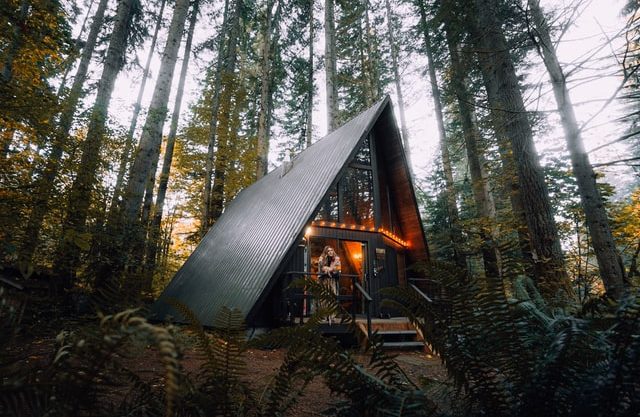Home is a very personal belonging. We get upset even if our family member tries to change something. Who would have imagined a few years ago that homeowners would be happy to share their homes with strangers? Who would have thought that a business could be built in this space? Airbnb could imagine and has disrupted the hotel industry with its business model.
With more than 5 million Hosts who have welcomed over 1.5 billion guest arrivals to around 100,000 cities and towns in almost every country, Airbnb has become a giant without owning a single property. That’s the beauty of technology disrupters. I am a curious business enthusiast; learning the business model of Airbnb excited me, and exploring how Airbnb makes money.
Airbnb: Disrupting the Hotel Industry
In 2007, Joe and Brian were roommates in San Francisco and were trying to figure out how to pay our rent. That weekend, a design conference was coming to San Francisco, and hotels were sold out, so the duo inflated three airbeds and turned their apartment into an Airbed & Breakfast.
Their connections that weekend led them to realize, “Maybe there’s a bigger idea here!” Soon after, Nate joined, and the trio created a way for people worldwide to be hosts.
Since then, they have grown from two hosts in San Francisco to a community of over four million hosts worldwide. On the surface, what people come to Airbnb for is a new way to travel, but below the surface, what they find on Airbnb is connection.
They experience a deeper connection to the communities they visit and the people who live there. The hosts deliver this connection, and they provide guests with a deeply personal experience — after all, guests are welcomed in their homes and live in their communities. Airbnb offers accommodations that differ from a traditional hotel room, valued by customers looking for an atmosphere that exhibits a home aesthetic.
It might have started to give users a unique experience, but it disrupted the $4.5 trillion global hospitality industry with its technology, lower cost structure, and ability to serve a wider audience.
The disruption was so consequential that Airbnb has listed more rooms for rent than any hotel chain. As per an analysis by the US Bureau of labor statistics, in 2014, Airbnb reduced hotel profits by up to 3.7 percent. For people who want to refer to Airbnb’s original pitch deck that helped them raise their first round of funding, check out.
On December 10, 2020, the company became a public company via an initial public offering, raising $3.5 billion. Hosts were offered the opportunity to buy stocks in the company at the opening IPO (initial public offering) price of $68 a share. The stock ended its first day of trading at $144.71
What makes Airbnb’s business model so unique?
Travel is one of the world’s largest industries, and its approach has become commoditized. The travel industry has scaled by offering standardized accommodations in crowded hotel districts and frequently visited landmarks and attractions. This one-size-fits-all approach has limited how much of the world a person can access, and as a result, guests are often left feeling like outsiders in the places they visit.
Airbnb has enabled home-sharing at a global scale and created a new travel category. Instead of traveling like tourists and feeling like outsiders, guests on Airbnb can stay in neighborhoods where people live, have authentic experiences, live like locals, and spend time with locals.
Hosts and guests can communicate before booking, pay through a secure payments platform, and post reviews after their stays or experiences. Airbnb features a review system where guests and hosts can rate each other after a stay. Hosts and guests cannot see reviews until both have submitted a review or until the window to review have closed, a system that aims to improve accuracy and objectivity.
Airbnb’s business model majorly serves two stakeholders: hosts and guests. Let’s try to understand the value proposition of Airbnb’s business model for each of them.
Hosts
Airbnb’s hosts are the foundation of its business model and community. With more than 7 million listings on its platform, Airbnb has created a community of hosts who come from all walks of life. Surprisingly, 90% of Airbnb’s hosts are individuals willing to share their homes and story with strangers. But why do they host?
Hosts primarily have three motivations.
- To earn extra income. As per the SEC filing of Airbnb, hosts have collectively made more than $110 billion since its founding in 2008.
- To introduce guests from other cultures to their neighborhoods and culture.
- To share their skills and passion.
Airbnb’s value proposition for hosts relies on its platform and tools that enable hosts to be successful and deliver a high-quality experience.
- Hosts can serve global customers. 50% of hosts receive a booking within four days of becoming available, and 75% receive a booking within 16 days.
- Hosts access more intelligent pricing and scheduling tools: These tools help hosts decide pricing based on the type and location of a listing, the season, expected demand, and other factors. Airbnb enables hosts to manage their calendars and accept, track quickly, and manage their upcoming reservations.
- Airbnb facilitates all payments for hosts on its platform: collecting payments from guests and processing payments to hosts.
- Host Guarantee Program: Hosts get property damage protection of up to $1 million for every listing in the event of third-party claims of personal injury or property damage.
- Hosts are aware of the quality of guests: Other hosts review the guests on their experience, and the platform helps build trust for future hosts.
Guests
Airbnb hosts guests from a range of cultures and places who are seeking everything from budget stays to luxury accommodations in large cities to remote villages. In 2019, 54 million active bookers worldwide booked 327 million nights and experiences on its platform, and since its founding, there have been over 825 million guest arrivals on Airbnb. 2019 was the best year for Airbnb as the platform is still healing from Covid.
Airbnb’s value proposition for guests relies on its ability to deliver authentic experiences to travelers. Let’s understand this aspect a bit in detail:
- Guests get to live like a localite: From visiting local neighborhood coffeehouses, shops, grocers, restaurants, bakeries, parks, hikes, and bike paths, guests can feel like part of a local community (unlike a hotel stay) and discover a world right outside their door. During a survey by Airbnb, 74% of guests said that their desire to explore a specific neighborhood was part of their decision to use Airbnb.
- Guests can feel at home even on vacations: Spaces on Airbnb have all the amenities of a place you can call home. Hosts can offer guests homes of all sizes with spacious backyards, washing machines, comfortable living rooms, fully-stocked kitchens, and even pools and book collections.
- Guests have the assurance of a trusted platform: Guests can rely on reviews from the traveler’s community to give them confidence about what they are booking as well as our guest refund policy, which assures guests that Airbnb will rebook or refund a guest if a listing does not meet Airbnb’s hosting standards.
We have understood how Airbnb adds value to each stakeholder of its ecosystem. Now let’s deep dive into the monetary aspect and see how Airbnb makes money?
What is Airbnb’s experiential marketing strategy?
How does Airbnb make money?
As you might have understood, Airbnb primarily makes money by facilitating guest stays at accommodations offered by hosts on its platform, in a way, from both guests and hosts.
In 2023, revenue increased by 18% to $9.9 billion compared to 2022, primarily due to a 14% increase in Nights and Experiences Booked of 54.5 million combined with higher
average daily rates driving a 16% increase in Gross Booking Value of $10.0 billion. The growth in revenue demonstrated continued strong travel demand. On a constant-currency basis, revenue increased 17% in 2023 compared to 2022,
Upon confirmation of a booking made by a guest, the host agrees to provide the use of the property. At such time, the host and guest also agree upon the applicable booking value as well as host fees and guest fees.
Airbnb makes money by charging both hosts and guests for using its platform, customer support, and payment processing. Airbnb recognizes revenue at the time of check-in to account for the cancellations.
- Airbnb charges guests as a percentage of the value of the booking. Guests typically pay a service fee of around 14% of the booking subtotal.
- Most Hosts pay a flat service fee of 3% of the booking subtotal. The subtotal is the nightly rate plus the cleaning fee and doesn’t include Airbnb fees and taxes.
So if the host is charging $300 for a 3-night stay, plus $60 for a cleaning fee, the booking subtotal is $360. Approximately 3% ($10.80) of that amount is deducted from the host’s earnings as part of the Host service fee, and 14% ($50.40) is charged to guests and included in the total amount they pay.
In this example: The host would earn $349.20, but the guest would pay $410.40. Hence in this example, Airbnb made $61.20. This is the revenue Airbnb recognizes and will make $5.99 billion in 2021.
Airbnb’s major cost centers, as per the 2021 annual report, are the cost of revenue (payment processing charges and fee of processing data-19%), Operation and support (customer support- 14%), product development (23.5%), Sales and marketing (19.5%) and Others (16%). Percentages are mentioned as a percentage of revenue.
Gross Booking Value represents the dollar value of bookings on Airbnb in a period and includes Host earnings, service fees, cleaning fees, and taxes. In 2021, GBV on Airbnb was $46.9 bn.
Conclusion
Airbnb has disrupted the traditional hotel industry and has also changed the way the world uses to live during vacations. Airbnb has changed the mindset of homeowners from keeping the unutilized portion to themselves to using it systematically to make money.
Even with such a scale, Airbnb is not complacent. Airbnb seems to have a solid growth strategy. Airbnb continues to invest in growing the size and quality of its Host and guest community and keeping them engaged through initiatives. For example, Airbnb designed over 150 upgrades to its platform throughout 2021 to improve every aspect of the Airbnb experience.
Airbnb estimates its serviceable addressable market (“SAM”) to be $1.5 trillion and its total addressable market (“TAM”) to be $3.4 trillion. With less than $50 bn in gross booking on its platform, Airbnb has not even captured the cherry on the cake. Let’s see how Airbnb eats the whole cake in the coming years.

